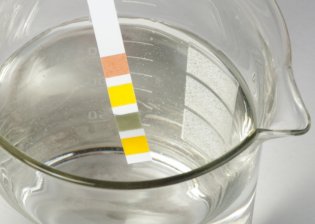DOES ALKALINIZED WATER PREVENT DISEASE?
Huge Number of People Believe Drinking Alkalinized Water Prevents Diseases: Are They Right?
We live in the heyday of designer bottled waters. Whether the water is filtered to maximum purity or flavored, sweetened, electrolyte-infused and vitamin-enriched into a “sports drink,” the discerning water consumer has never enjoyed more options. A rising star in this field, in terms of sales growth, is alkaline water. With various bottled brands available in stores, alkaline water is also on tap in trendy water bars, and can be made at home with special machines. Alkaline water is intended to make the body less acidic, in hopes that this will help ward off a range of maladies, from annoyances such as heartburn or indigestion to serious issues like osteoporosis, muscle loss and heart disease.
The human body’s pH is should be slightly alkaline (it varies from organ to organ), but many life circumstances can push the pH to the acidic side of neutral. Medical conditions, like diabetes or kidney problems, as well as lifestyle choices, such as diet and exercise (or lack thereof) can impact the body’s pH level. If you’re constantly acidic, a condition known as chronic acidosis, this can be a cause or symptom of any number of serious conditions, including those named above.
Alkaline bottled water can indeed make your pH less acidic, according to research at Montana State University. The water being tested, Akali brand alkaline spring water, raised the blood and urine pH of the subjects, making them less acidic than the control group, which drank Aquafina. The same lab ran another study that determined Akali rehydrated subjects more effectively, after a grueling bike workout, than a control group that drank Aquafina.
Aquafina was the perfect control against which to compare the spring water, according to Dan Heil, who authored both studies. “It’s just tap water that goes through a process to strip absolutely all minerals and electrolytes.”
Akali brand water comes from a spring in Washington’s Cascade Mountains. The company that produces it had hired Heil and his lab to test the impact of Akali on body pH and hydration status. The results were compelling enough to Heil that he published them. Still, he’s cautious about the idea of attempting to manage one’s pH with water. “It’s a very low dose impact on the body. In order for the body to realize meaningful impact, it’s got to be a lot of water.”
Unless you’re exercising regularly, drinking too much water can be a bad thing. If a non-exercising adult living in a moderate climate (as opposed to a hot and humid climate that causes one to sweat a lot) starts drinking six liters of water a day, Heil said, “that’s going to have a negative impact on the body. People who hyper-hydrate, who drink too much water, end up flushing valuable minerals and electrolytes out of the body, because the body can’t do anything with all of that water.”
Too much water can even lead to an acute, life-threatening condition called hyponatremia.
There’s no doubt that having a lower than normal pH in one’s body—being more acidic, that is—is problematic. And staying on top of one’s pH, Heil says, is worth doing, as it can tell you a lot. The best way to mind your pH is to test your urine with pH test strips, which are available at any pharmacy. The reading can vary noticeably throughout the day, depending on what you’ve recently eaten and done. Heavy exercise will cause a short-term acidification because your blood absorbs carbon dioxide, but that will quickly normalize. Meanwhile, exercise stimulates the appetite, Heil says, and what we eat offers a better opportunity to manage one’s pH.
“Food is going to have a far, far greater impact on the body than water consumption,” he said.
“A diet high in fruits and vegetables is well known to have an alkaline impact on the body. A diet high in meat is going to have a clear acidic influence.”
This isn’t to say that meat is necessarily bad, he said, but rather, it creates acidity as a result of how it is digested. “It’s the byproducts of digestion that have an acidic or alkaline impact on the body.”
As long as the vegetables one consumes outweigh the meat and fat, and processed carbohydrates and sugars are kept to a minimum, the body’s pH should take care of itself. Eating along these lines, he adds, also happens to be a “practical, healthy diet.”
Meanwhile, drinking bottled alkaline water can get expensive, and that money could buy a lot of veggies.
“There are far better ways you can use your money to have a positive nutritional influence,” he added.
But if you’re determined to medicate with alkaline water, make sure that the water you’re drinking is, in fact, alkaline.
“Alkalinity in water can have the tendency to dissipate very quickly after it’s alkalized,” Heil warned. “So unless it’s a stable pH you don’t know if you’re drinking alkalized water. It may have been alkalized when it came out of the machine, or when it was first bottled, but it may not be alkalized when you drink it.”
This brings up an important distinction between two basic types of alkaline water. Some is machine-manufactured, often by passing electric current through water to make it more alkaline. And some alkaline water on the market comes out of the ground that way and is bottled–spring water, that is, like the water used in Heil’s study. Alkaline spring water is rich in minerals, which keep the water at a stable pH.
If you really care about your pH level–and you should–then you might want to invest in some pH test strips. In addition to testing yourself, the strips could also be used to check the pH of whatever water you drink, be it from a bottle, a tap, or a stream of glacial melt. But whatever the numbers say, you should probably eat more vegetables.








Follow Us!